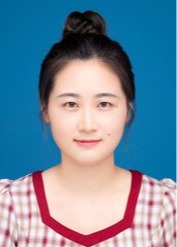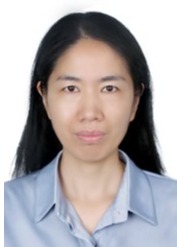The central nervous system (CNS) in higher vertebrates, comprising the brain, spinal cord, and several cranial nerves, influences and controls the activities of the entire body. Traditionally, the CNS was considered “immune-privileged,” meaning that it was thought to be separated from the immune system, lack proper immune surveillance, and devoid of classical lymphatic drainage. Brain, the body’s most complex organ, requires exceptional protection. This is provided primarily by the skull, which creates the cranial cavity, while the spinal cord travels from the back of the brain and down through the center of the protective vertebral column, terminating in the sacral region of the lower back. Recent findings also reveal that performing immune surveillance in the dura of the brain allows monitoring of the brain for threats and diseases, without the need for direct entry of immune cells into the brain parenchyma, hence avoiding disturbance of the neurons. The PI is a research immunologist with particular expertise in the following topics:
(1) Brain antigens to access the CSF
(2) CD8+T cell and its memory response in brain, meninges and Skull;
(3) Macrophages dysfunction and neuroinflammation in brain;
(4) Neurotropic viral transmission in brain and skull;
(5) Metabolism of Cholesterol in neurological disorders;
(6) Mechanism on meningeal lymphangiogenesis

Email:lixiaojing@fudan.edu.cn
Research Direction:Immunologic regulation in CNS

Email:zhuyongjie23@163.com
Research Direction:Transposons and nuclear modification

Email:24211530011@m.fudan.edu.cn
Research Direction:Brain Immunity and Neurological injury

Email:xm_wu@fudan.edu.cn
Research Direction:Laboratory Management Responsibilities

Email:qilinlin@shu.edu.cn
Research Direction:Infection and immunity in CNS

Email:tianxx0511@163.com
Research Direction:Transcriptomics on neurotropic infection and immunity

Email:WXLcc@shu.edu.cn
Research Direction:Infection and neurological injury

Email:13792339581@163.com
Research Direction:Brain Immunity and Neurological injury

Email:bkzhang997@126.com
Research Direction:Metabolic regulation of lymphangiogenesis
Yang D#, Tian T, Li X, Zhang B, Qi L, Zhang F, Han M, Wang S, Xiao J, Gou Y, Zhang R, Liu Q, Su S, Liu J, Huang X, Gao Q, Hui L, Tang H, Wang H*, Wei B*. ZNT1 and Zn2+ control TLR4 and PD-L1 endocytosis in macrophage to improve chemotherapy efficacy against liver tumor. Hepatology. 2024 Aug 1;80(2):312-329. doi: 10.1097/HEP.0000000000000629. *Corresponding author.

Xiao J, Wang S, Chen L, Ding X, Dang Y, Han M, Zheng Y, Shen H, Wu S, Wang M, Yang D, Li N, Dong C, Hu M, Su C, Li W, Hui L, Ye Y*, Tang H*, Wei B*, Wang H*. 25-Hydroxycholesterol regulates lysosome AMP kinase activation and metabolic reprogramming to educate immunosuppressive macrophages. Immunity. 2024 Apr 12:S1074-7613(24)00142-0. doi: 10.1016/j.immuni.2024.03.021. *Co-Corresponding author.

Zhang F#, Zhang B#, Ding H, Li X, Wang X, Zhang X, Liu Q, Feng Q, Han M, Chen L, Qi L, Yang D, Li X, Zhu X, Zhao Q, Qiu J, Zhu Z, Tang H, Shen N*, Wang H*, Wei B*. The Oxysterol Receptor EBI2 Links Innate and Adaptive Immunity to Limit IFN Response and Systemic Lupus Erythematosus. Advanced Science (Weinh). 2023 Sep;10(27):e2207108. doi: 10.1002/advs.202207108. Epub 2023 Jul 19. *Corresponding author.

Li X#, Qi L#, Yang D, Hao S, Zhang F, Zhu X, Sun Y, Chen C, Ye J, Yang J, Zhao L, Altmann DM, Cao S, Wang H*, Wei B*. Meningeal lymphatic vessels mediate neurotropic viral drainage from the central nervous system. Nature Neuroscience. 2022 May;25(5):577-587. *Corresponding author.

Zhang F#, Qi LL#, Feng Q, Zhang B, Li X, Liu C, Li W, Liu Q, Yang D, Yin Y, Peng C, Wu H, Tang Z, Zhou X, Xiang Z, Zhang Z, Wang H*, Wei B*. 2021 Jul 13. HIPK2 phosphorylates HDAC3 for NF-κB acetylation to ameliorate colitis-associated colorectal carcinoma and sepsis. PNAS;118(28):e2021798118. *Corresponding author.

Lu Y#, Qiu Y#, Chen P, Chang H, Guo L, Zhang F, Ma L, Zhang C, Zheng X, Xiao J, Zhong R, Han L, Xu X, Zhang Y, Li D, Zhong G, Boyton R, Huang Y, He Y, Hu R*, Wei B*, Wang H*. 2019 Dec. The ER-localised Hrd1 ubiquitinates and inactivates Usp15 to promote TLR4-induced inflammation during bacterial infection. Nature Microbiology;4(12):2331-2346. *Co-Corresponding author.

Qi L#, Li X#, Zhang F#, Zhu X, Zhao Q, Yang D, Hao S, Li T, Li X, Tian T, Feng J, Sun X, Wang X, Gao S, Wang H, Ye J, Cao S, He Y, Wang H*, Wei B*. VEGFR-3 signaling restrains the neuron-macrophage crosstalk during neurotropic viral infection. Cell Rep. 2023 May 30;42(5):112489.*Co-Corresponding author.

 Address: Basement level 3, Building A, Medical Research Building, 131 Dongan, Xuhui, Shanghai
Address: Basement level 3, Building A, Medical Research Building, 131 Dongan, Xuhui, Shanghai
 Postcode: 200032
Postcode: 200032
 Email: weibin@fudan.edu.cn
Email: weibin@fudan.edu.cn